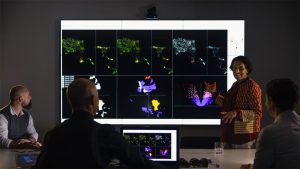NSILA.ORG
Certifications
NSILA.ORG
Popular Certifications
NSILA.org provides an extensive curriculum covering the breadth of intelligence disciplines. Our programs are tailored to meet the needs of various sectors within the intelligence community, from national security agencies to private sector intelligence functions. Here’s an overview of our core offerings:
NSILA offers programs that encompass these disciplines:
- Signals Intelligence (SIGINT): Focuses on intercepting and analyzing electronic signals to gather intelligence.
- Electronic Intelligence (ELINT): Specializes in collecting and interpreting radar emissions to identify and assess threats.
- Communications Intelligence (COMINT): Involves intercepting communications between people to uncover valuable information.
- Geospatial Intelligence (GEOINT): Utilizes geographic information and imagery to map and analyze physical and cultural landscapes.
- Imagery Intelligence (IMINT): Relies on interpreting satellite and aerial imagery to gather information about foreign activities and facilities.
- Measurement and Signature Intelligence (MASINT): Detects, tracks, and identifies the unique signatures of targets, such as radar profiles or chemical compositions.
- Open-Source Intelligence (OSINT): Gathers and analyzes information from publicly available sources, including the internet, media, and public government data.
- Human Intelligence (HUMINT): Gathers intelligence through interpersonal contact, including espionage and interviews.
- Financial Intelligence (FININT): Analyzes financial transactions and patterns to uncover illicit activities and understand economic capabilities.
- Technical Intelligence (TECHINT): Focuses on the analysis of weapons systems and technologies to understand capabilities and vulnerabilities.
- Counterintelligence (CI): Aims to protect against espionage and other intelligence threats by identifying and neutralizing them
- Cyber Intelligence: Focuses on collecting and analyzing information from cyberspace to inform decision-making and protect against cyber threats.
- Acoustic Intelligence (ACINT): Involves the collection and analysis of acoustic phenomena, particularly in submarine warfare.
- Biometric Intelligence: Utilizes human physiological and behavioral characteristics for identification and surveillance purposes.
- Medical Intelligence (MEDINT): Involves the collection and analysis of health information to inform military and humanitarian missions.
- Chemical and Biological Intelligence (CBINT): Focuses on the threat assessment and analysis of chemical and biological weapons.
- Nuclear Intelligence (NUCINT): Concerns the monitoring and analysis of nuclear weapons and materials.
- Radiological Intelligence (RADINT): Involves the analysis of radiological data for the purpose of informing participants about nuclear tests, accidents, or other radiological events.
- Environmental Intelligence (ENINT): Uses environmental data and information to support military operations and national security strategies.















